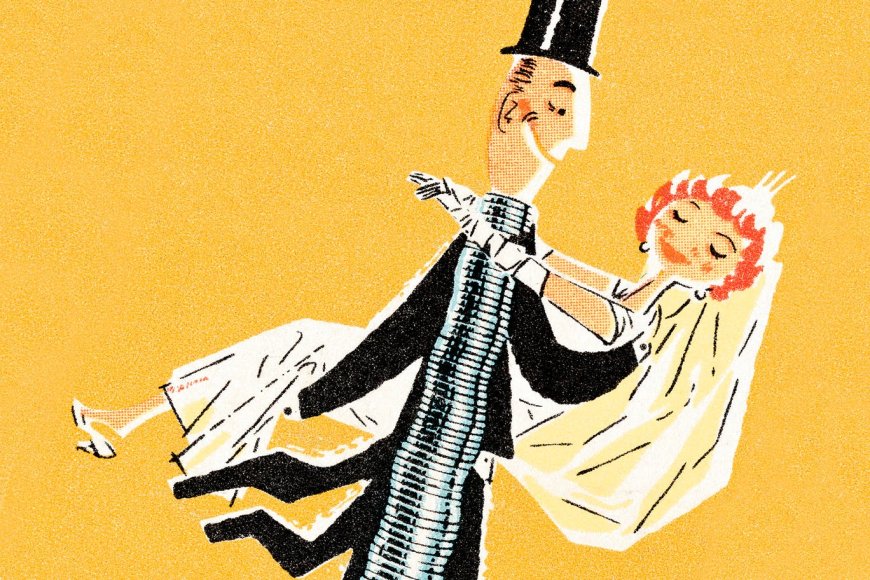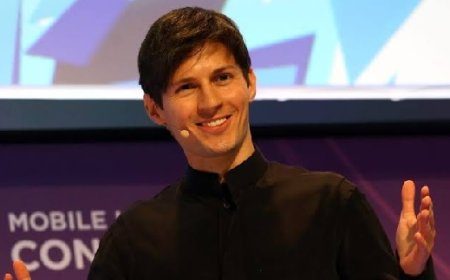Is it really so bad to want to marry rich?
Did you see the “finance guy” at Glastonbury? No, he wasn’t one of the DJs. He was instead an imaginary, idealised figure who loomed large over the festival – on flags that bore the words “LOOKING FOR A MAN IN FINANCE”, as well as via the phones of numerous attendees, who blasted out clips of a viral musical number celebrating him and his kind.
If none of this is ringing a bell, allow us to introduce you to a TikTok video created by performer Megan Boni, which carries the refrain: “I’m looking for a man in finance / Trust fund, six five, blue eyes.” Over the past couple of months, the 19-second clip has racked up more than 50 million views and thousands of comments.
And across the internet, people tapping into the trend have declared that they too would like a partner who fits this bill. But where is this man? And why is everyone desperately looking for him? And even though it’s all fairly tongue in cheek, what does his sheer omnipotence say about the sorry state of modern dating?
Much has been made of the fact that the likelihood of finding a man with such specificities is not particularly high. According to calculations made by Rae Hodge, a Los Angeles-based corporate strategy director, there are just two men in the US who fit this description.
That’s after you’ve considered the number of men who work in finance (1.7 million men in the US), have a trust fund (1.2 per cent of Americans), are 6ft 5in (0.1 per cent of men in the US), have blue eyes (27 per cent of men in the US), and of whether they’re single or not.
But that isn’t stopping people from pining, and openly shifting their priorities when it comes to looking for love. Because romance is fun and all, but it’s not going to pay your water bill. Unlike other viral memes, the “finance guy” isn’t just another silly social media trend; it’s one that reflects a deeper seismic shift within a society plagued by economic collapse, political uncertainty, and an ongoing cost of living crisis.
With all this in mind, it’s no wonder single people are deciding to forgo love in favour of finances. Or at least prioritise wealth above other, more meaningful, factors.
Just a few years ago, it would’ve been considered gauche and tacky to even mention money when talking about your dating life. Now, it’s completely normal.
Among my single friends, many are shameless about wanting to settle down with a wealthy partner. “Ideally, you want someone from generational wealth so you know that money isn’t going anywhere,” one told me over dinner recently.
Others are quick to use first dates as a chance to ask questions about housing and career trajectories to get a sense of someone’s earnings – and swiftly abandon ship if someone doesn’t meet their expectations.
Personally, I still find the subject icky, and resent the idea of feeling financially dependent on a partner. But I can understand why, given the current climate, many of us are “looking for a man in finance”, so to speak. The modern world isn’t built for single people, least of all single women.
Whether it’s paying taxes or doing your supermarket shop, literally everything is easier when it’s split between two people. I know plenty of couples who’ve sped up the progression of their relationship in order to move in together to save money on rent, sometimes to their detriment.
All things considered, then, is marrying for money really that bad? It’s what people used to do, of course. And even though society has come on leaps and bounds in terms of equality, there are evidently still many hurdles holding women back from being able to achieve the same financial milestones as men.
The gender pay gap has not yet been closed – according to the Office for National Statistics (ONS), median pay for all employees was 14.3 per cent less for women than for men in April 2023. Meanwhile, a study by the Fawcett Society and Total Jobs from last year found that roughly 250,000 mothers with young children have left their jobs over struggles with balancing work and childcare.
And on top of this, a recent report compiled by the Women’s Budget Group found that women need more than 12 times their annual salaries to be able to buy a home in England, while men need just over eight times.
"Just a few years ago, it would’ve been considered gauche and tacky to even mention money when talking about your dating life. Now, it’s completely normal"
But this is bigger than the finance guy, and speaks to a sea change in how we talk about dating online. In recent months, there has been a surge in viral videos in which women pontificate about the benefits of marrying rich men, and “teaching” their followers how to find one.
The most prolific of these women is Texas-based YouTuber Leticia Padua, known online as Shera Seven. She regularly posts videos urging women to marry for money, and advising against becoming “Bob the Builder chicks” – who invest too much energy emotionally supporting male partners and offering to split bills with them. Elsewhere, there’s TikToker Mimi Shou, who built her platform by sharing stories of pursuing finance guys in New York.
Then there’s the rising “trad wife” movement. Short for “traditional wives”, the term denotes women reverting to housewife roles akin to the 1950s. They cook and clean while their husbands are out at work and spend days taking care of their children, doing it all with so much Valencia-filtered vim that their videos rack up millions of views around the globe.
Have we gone back in time? Or have we just reverted to archaic ideals out of sheer desperation? I suspect it’s the latter. And while I’m still too much of a hopeless romantic to get sucked in, I can see the appeal. Because let’s face it, times are tough in 2024. Perhaps for a lot of people, the idea of marrying for money is not old-fashioned at all. Nor is it even uncouth. It’s just necessary. So necessary, in fact, that people are willing to walk around a music festival holding flags in pursuit of a rich man. Whether or not the flags were successful, we’ll never know. But at least all the 6ft 5in men will have been tall enough to spot them.
This brings me back to the finance guy. His popularity is ironic, really, when you consider how deeply uncool working in finance has always been, at least in the sense that it puts you firmly outside the zeitgeist. Revealing yourself to work in the industry was always preceded by some sort of apology, or a self-deprecating explanation. Now it seems that no such preamble is necessary. If you work in finance, you’re currently the hottest property on the dating market. Height and blue eyes are just arbitrary bonuses.
Source : Olivia Petter (Independent)


























































